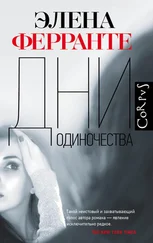“I have to run, Giannì, but we had so much fun we have to see each other again.”
“My mother doesn’t let me go out, I have to study.”
“It’s pointless for you to study, you’re already smart.”
“I’m not smart, I failed, I’m repeating the year.”
He looked at me in disbelief.
“Come on, that’s impossible. I never flunked and they flunk you? That’s not fair, you should rebel. You know, I really wasn’t cut out for school. They gave me a machinist’s diploma because I’m a nice guy.”
“You’re not a nice guy, you’re an idiot.”
“You’re saying you had fun with an idiot?”
“Yes.”
“Then you’re an idiot, too?”
“Yes.”
Only when he was already on the landing did Corrado tap himself on the forehead and exclaim: I was about to forget something important, and he pulled out of his pants pocket a worn envelope. He said that was what he had come for, Vittoria sent it to me. Luckily, he had remembered, if he had forgotten it my aunt would have shrieked like a frog. He said frog to make me laugh at a senseless comparison, but this time I didn’t. As soon as he gave me the envelope and disappeared down the stairs, my anguish returned.
The envelope, all creased and dirty, was sealed. I opened it in a hurry, before my mother came home. It was only a few lines, and still there were a lot of spelling mistakes. Vittoria said that since I had not kept in touch with her, since I didn’t answer the phone, I had proved that, exactly like my father and mother, I was incapable of feeling affection for my relatives, and therefore I should give back the bracelet. She would send Corrado to get it.
4.
I began to wear the bracelet again for two reasons: first, since Vittoria wanted it back, I wanted to show it off in class at least for a while and let it be understood that my situation as a repeater said nothing about the girl I was; second, because my father, as the separation approached, was trying to re-establish contact with me, and when he appeared at school I wanted him to see it on my wrist to let him understand that, if he ever invited me to Costanza’s house, I would certainly wear it. But neither my classmates nor my father seemed to notice, the first out of envy, the second because simply mentioning it probably embarrassed him.
My father generally showed up outside school with a friendly manner, and we went together to eat panzarotti and pastacresciuta in a shop not far from the funicular. He asked me about my teachers, my classes, my grades, but I had the impression that the answers didn’t interest him, even if he put on an attentive expression. Besides, that subject was quickly exhausted, he didn’t go on to anything else, I didn’t venture questions about his new life, and we ended up in silence.
The silence saddened me, irritated me; I felt that my father was giving up on being my father. He looked at me when he thought I was distracted and didn’t notice, but I did notice and felt that his gaze was bewildered, as if he had trouble recognizing me, all in black from head to toe, with heavy makeup; or maybe as if I had become too well known to him, better known than when I had been his beloved daughter—he knew that I was two-faced and devious. When we got to the house, he became cordial again, kissed me on the forehead, said: say hello to Mamma. I waved goodbye again and, as soon as the door closed behind me, imagined despondently that he was relieved, accelerating noisily as he departed.
Often, on the stairs or in the elevator, I started singing to myself some Neapolitan songs that I hated. I pretended to be a singer, I bared my neck and shoulders slightly and halfheartedly repeated lines that seemed especially absurd to me. On the landing, I would compose myself, open the door with the key, and, going in, find my mother, who, in turn, had just come home from school.
“Papa says hello.”
“Good for him. Have you eaten?”
“Yes.”
“What?”
“ Panzarotti and pastacresciuta. ”
“Tell him, please, that you can’t always eat panzarotti and pa stacresciuta . Apart from anything else, they’re bad for him, too.”
The sincere tone of that last phrase and similar ones that occasionally escaped her surprised me. After the long period of despair something in her was changing, maybe the substance itself of the despair. By now she was skin and bones, she smoked more than Vittoria, her shoulders were increasingly rounded, and when she sat at her work she looked like a hook cast to catch some sort of elusive fish. And yet, for some time now, instead of worrying about herself she’d seemed worried about her ex-husband. Sometimes I was convinced that she considered him near death or even already dead, though no one realized it yet. Not that she had stopped blaming him in every possible way, but she mixed bitterness with apprehension, she hated him and yet seemed to fear that outside her guardianship he would soon lose his health and his life. I didn’t know what to do. Her physical appearance concerned me, but the progressive loss of any other interest that wasn’t the time spent with her husband made me angry. When I skimmed the stories she corrected and often rewrote there was always an extraordinary man who for one reason or another had died. And if a friend came by the house—in general teachers from the high school where she taught—I often heard her say things like: my ex-husband has many faults, but on this matter he is absolutely right, he says that, he thinks this. She quoted him frequently and with respect. But not only that. When she discovered that my father had begun to write with some frequency for Unità , she who generally bought the Repubblica went to buy that paper, too, and showed me the byline, marked certain sentences, cut out the articles. I thought that if a man had done to me what he had done to her, I would bash in his chest and tear out his heart, and I was sure that she, too, in all that time, must have dreamed of such destruction. But now, increasingly, a bitter sarcasm alternated with a quiet cult of memory. One evening I found her putting the family photos in order, including the ones she kept shut in the metal box. She said:
“Come look at this, look how handsome your father is here.”
She showed me a black-and-white snapshot I’d never seen, although earlier I had rummaged everywhere. She had pulled it out of the Italian dictionary she’d had since high school, a place where it would never have occurred to me to look for pictures. My father must not have known about it, either, since in it, not blotted out, was Vittoria when she was still a girl and who else but—I recognized him immediately—Enzo. There was more: between my father and my aunt on one side, and Enzo on the other, a tiny woman was sitting in a chair, not yet old but not young, with an expression that to me looked harsh. I murmured:
“Here Papa and Aunt Vittoria look happy, look how she’s smiling at him.”
“Yes.”
“And this is Enzo, the criminal cop.”
“Yes.”
“And here he and Papa aren’t mad at each other.”
“No, at first they were friends, Enzo used to visit the family.”
“Who’s that lady?”
“Your grandmother.”
“What was she like?”
“Odious.”
“Why?”
“She didn’t love your father, so she didn’t like me, either. She never even wanted to speak to me, or see me, I was always the one who wasn’t part of the family, a stranger. Imagine, she preferred Enzo to your father.”
I examined the picture attentively, I felt a pang. I grabbed a magnifying glass from the pen holder and used it to enlarge the right wrist of my father and Vittoria’s mother.
Читать дальше
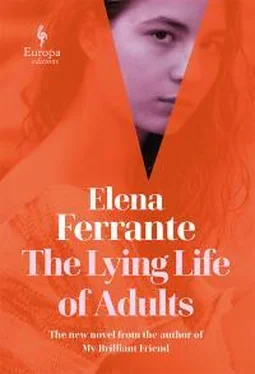
![Элена Ферранте - История о пропавшем ребенке [litres]](/books/32091/elena-ferrante-istoriya-o-propavshem-rebenke-litres-thumb.webp)
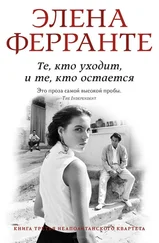
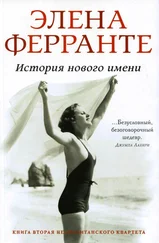
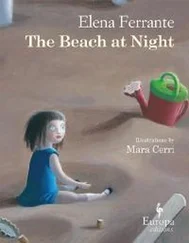
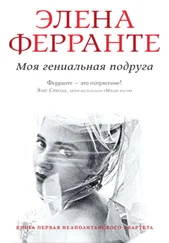
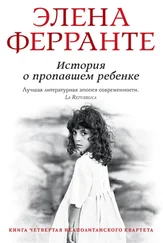
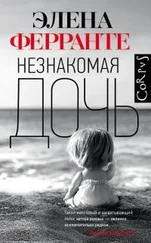
![Элена Ферранте - Дни одиночества [litres]](/books/404671/elena-ferrante-dni-odinochestva-litres-thumb.webp)


